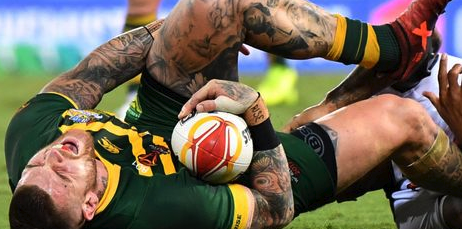Make an Appointment
A sports injury could have catastrophic effects on one’s self-being because the rehabilitation process is quite a struggle. However, with proper help from a Sports Physiotherapist, it’s possible to improve the healing process not just by rehabilitation, but also with essential psychological assistance. Positive reinforcement is the key element used by a sports therapist to make the rehabilitation process easier and better.

When an athlete undergoes an acute injury, there are series of psychological phases that they usually go through:
1. Denial
The first phase is the worst of all where an athlete totally denies the severity of their injury. They believe that it’s all right and they can live with it. However, the realization soon sets in which is the beginning of the second phase.
2. Bargaining
The injury is recognized, but it’s still believed the recovery won’t take much time.
3. Anger
When the pain and damage from the injury doesn't go away even after some time, it’s the commencement of a more precarious phase that involves anger, and that too a lot of it.
4. Depression
When an athlete isn’t able to train because of the injury, it’s the beginning of a new phase that involves a depressed state of mind and hopelessness.
5. Acceptance
It’s the phase where the injury is finally recognized and an athlete accepts that they need to go through a rehabilitation process because it’s vital for their recovery.
Note that it’s not necessary that every athlete would go through all the aforementioned phases and it’s also possible that they may go through them in an entirely different order. However, the most important part is the realization where an athlete is ready to take measures to recover themselves from the injury. In the acceptance phase, the first step is to seek professional advice so to understand how bad is the injury and if they will ever be able to fully recover.
What includes psychological rehabilitation?
Having a proper rehabilitation process with a categorical timeframe ensures that the athlete won’t be demoralized. The incremental improvements should be visible enough to keep the rehabilitation process going. To ensure this, the athlete is given a daily homework to boost the recovery process. The whole psychological rehabilitation process needs to be carefully designed and a realistic timeframe needs to be provided to avoid any kind of dissonance or loss of enthusiasm on the athlete’s end.
Also, it’s worth mentioning that the goals set should be achievable. And as said before, if an athlete can’t recover, for instance, in a three-week period, then they should never be told they would. Then, the goals also need to be broken down into achievable targets for better results.
Using imagery could largely help to reduce the stress levels of an athlete and it’s something that a sports therapist should always rely on. Having a conversation with the athlete can also effectively induce positive reinforcement. It’s the job of a Sport's Physiotherapist to show the bigger and beautiful picture that awaits an athlete after their full recovery.

Date Published: Monday, May 22, 2017
Locate a Mobile Physiotherapy
Service Near me
Get the experience & convinence you deserve to support your or a loved one's allied health needs.
Our Mobile Physiotherapy team are currently serving & taking appointments in the following states and regions in Australia:
Need to get into direct contact with ur Client Services team? We're all ears. Call our team directly on 1300 731 733









